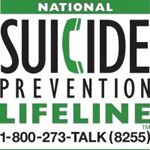 Suicide is the second leading cause of death among college-age students, with an estimated 1, 088 occurring on college campuses each year. The most recent National College Health Assessment found that 94 percent of the college and university students surveyed reported that they felt overwhelmed by everything they had to do. Forty-four percent confessed that they had felt so depressed it was difficult to function, According to SAMHSA’s National Survey on Drug Use and Health (2008), young adults age 18 to 25 were more likely than adults age 26 to 49 to have had serious thoughts of suicide (6.7 percent vs. 3.9 percent).
Suicide is the second leading cause of death among college-age students, with an estimated 1, 088 occurring on college campuses each year. The most recent National College Health Assessment found that 94 percent of the college and university students surveyed reported that they felt overwhelmed by everything they had to do. Forty-four percent confessed that they had felt so depressed it was difficult to function, According to SAMHSA’s National Survey on Drug Use and Health (2008), young adults age 18 to 25 were more likely than adults age 26 to 49 to have had serious thoughts of suicide (6.7 percent vs. 3.9 percent).
Suicide is a sensitive and difficult topic to address. Unfortunately for much of our society, it is still taboo to talk about it. Suicide is a preventable tragedy for college students. The importance of education about depression, substance abuse, and other suicide risk factors can save lives.
College students often discuss their personal and emotional concerns with family, friends, or professors. This means that are entire Auburn Family is in a unique position to help students find support when they need it. A key part of that is talking openly about mental health issues including suicide.
North Carolina State University has produced an awarding winning video addressing the need to stop the stigma around mental health and suicide: #StopTheStigma
One effective suicide prevention program is QPR.
QPR stands for: Question, Persuade, and Refer – 3 simple steps that anyone can learn to help save a life from suicide. Just as people trained in CPR and the Heimlich Maneuver help save thousands of lives each year, people trained in QPR learn how to recognize the warning signs of a suicide crisis and how to question, persuade, and refer someone to get the help they need. With QPR training, you can learn how to save the life of a student, friend, colleague, family member, or neighbor.
Presented by a certified QPR instructor, each QPR training includes information on:
- The problem of suicide nationally and in Alabama
- Common myths and facts associated with suicide
- Warning signs of suicide
- Tips for asking the suicide question
- Methods for persuading suicidal individuals to get help
- Ways of referring at risk people to local resources
- AND time for Questions and Answers
To request more information about QPR or to schedule a QPR training session, please contact QPR@auburn.edu.
For more information about suicide prevention, see: www.suicidepreventionlifeline.org
